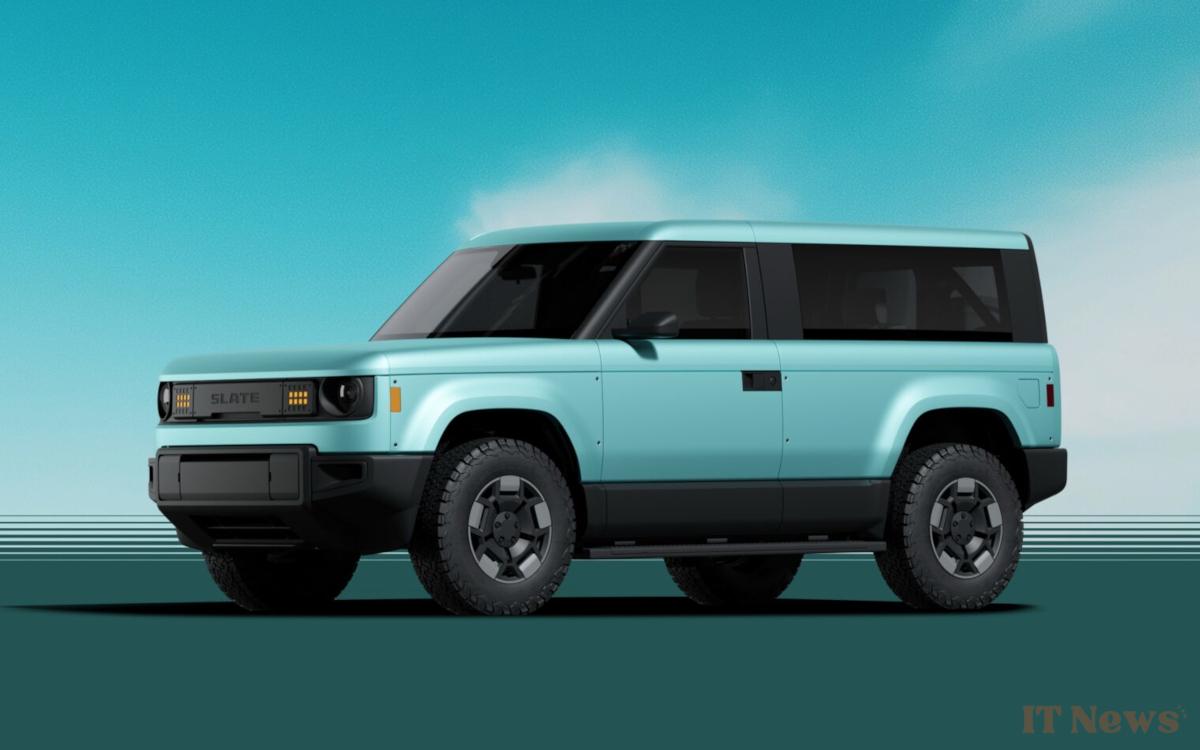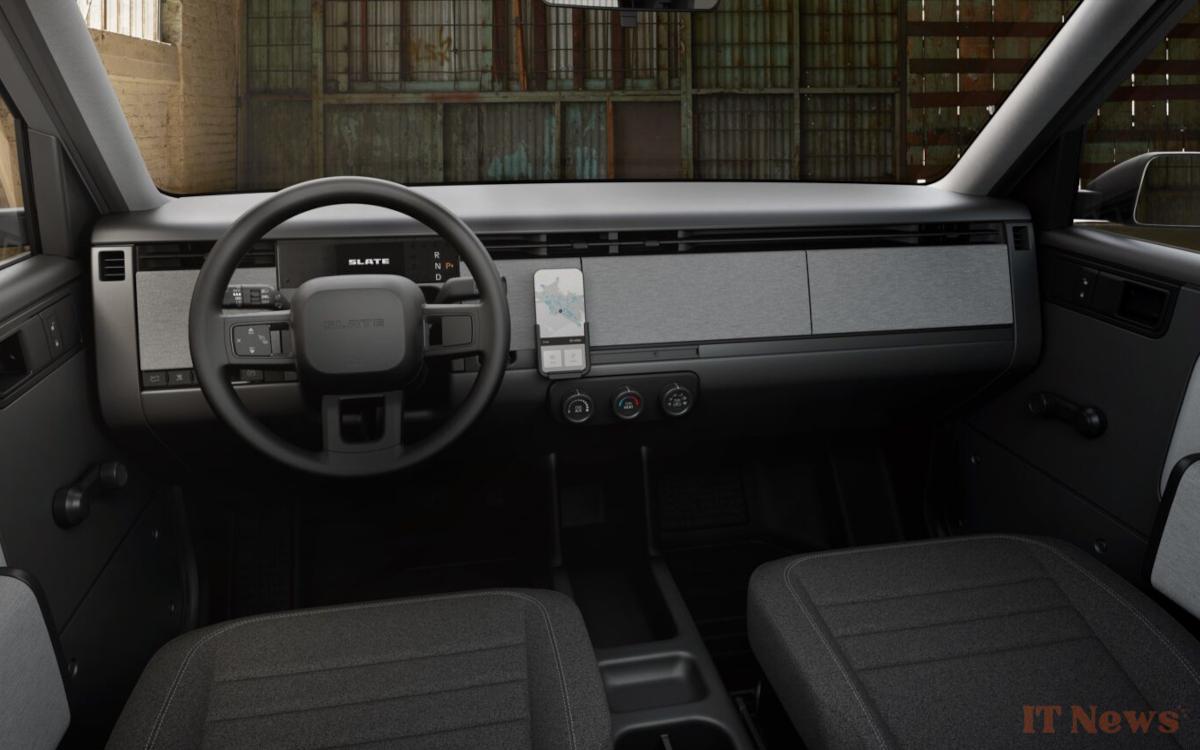A new American manufacturer is causing a sensation with an electric vehicle that goes completely against the grain. No screen, kit options, but an unbeatable price. This minimalist approach could appeal to a new audience.
Electric vehicles are becoming increasingly sophisticated, with XXL screens, onboard software, and increasingly complex equipment. This evolution comes at a cost: average prices continue to rise, and truly affordable models are becoming rare. However, some users are looking for simpler, more robust alternatives without superfluous technology, particularly for practical, everyday uses.
Slate Auto, a very young American company backed by Jeff Bezos, offers an unexpected answer with the Slate Truck. This 100% electric pickup has a starting price of around 18,700 euros with US federal aid, but its price climbs to nearly 25,700 euros without subsidies. At this price, no integrated screen or electric windows: everything is designed for simplicity. The manufacturer is banking on basic equipment, but on a customizable vehicle thanks to self-assembly kits, such as a five-seater SUV module or an open roof.
The Slate Truck promises 240 km of autonomy from 18,700 euros with its minimalist equipment
The Slate Truck will be offered with two batteries: 57.2 kWh for 240 km of range and 84.3 kWh for 386 km. It recharges to 80% in 30 minutes and integrates essential safety features, including automatic emergency braking, forward collision warning and up to eight airbags. Built on a unique base, it offers a customizable body via adhesive films, not paint. On board, no infotainment: the user connects their smartphone or tablet via a USB port.
The steel wheels, window cranks and physical controls for the ventilation are reminiscent of vehicles of yesteryear. The 2020 Dacia Spring and Renault Twingo E-Tech are offered at similar prices, but remain much smaller and limited in use, whereas the Slate Truck aims wider with a convertible utility format. For the moment, no arrival in Europe is planned. But this stripped-down concept could inspire other brands to return to simpler, more accessible vehicles that are better adapted to essential needs.





0 Comments